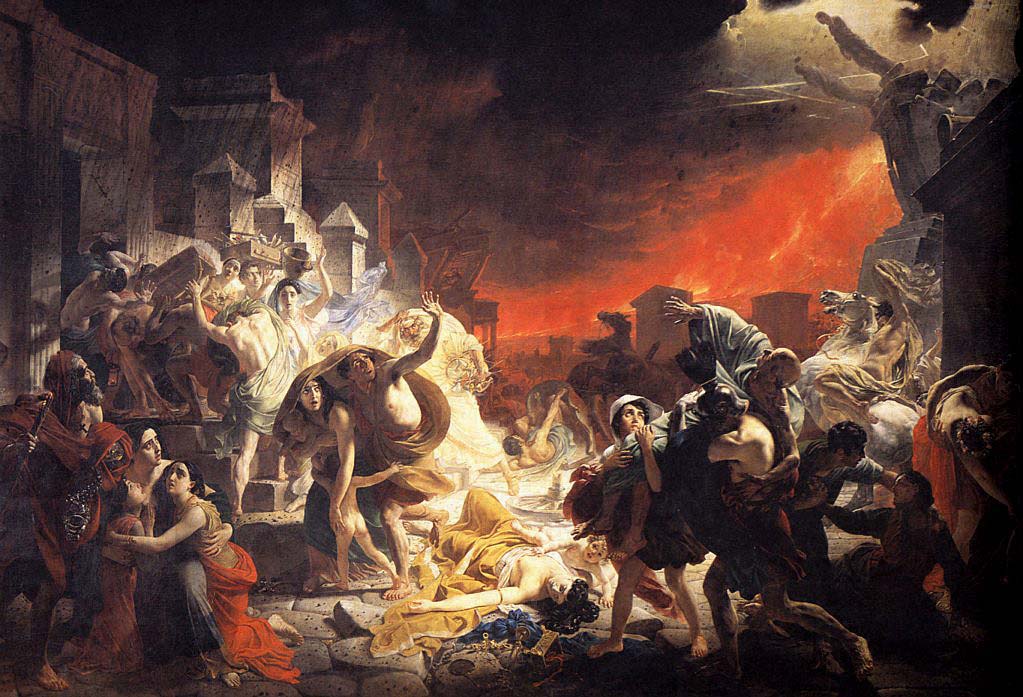The Convict Becomes a Proverb
Ezekiel 16:44
44Behold, every one that useth proverbs shall use this proverb against thee, saying, As is the mother, so is her daughter (ASV, 1901).
This begins the fourth section of the long parable and is found in verses 44-52. The actions of the queen were so repulsive that the people would describe them as a saying, a “proverb”, or warning to others NOT to do the same. This “proverb” is similar to what is said in modern or contemporary parlance, “like father, like son”, only here it says, “As is the mother, so is her daughter.” In keeping with the abandoned female infant who grew to be a queen, then descended into a harlot, the “proverb” takes the feminine character. Therefore how could Jerusalem, who was more depraved than ever, even consider that they would not be judged?
God Repeats Jerusalem’s Background
Ezekiel 16:45
45Thou art the daughter of thy mother, that loatheth her husband and her children; and thou art the sister of thy sisters, who loathed their husbands and their children: your mother was a Hittite, and your father an Amorite (ASV, 1901).
The Hebrew here for “loatheth” is better translated as “vomited out in rejection”. This describes the level of intense hatred Israel had for God and her children. This adds to the motivation she had to become a harlot, destroying herself and her children in the process. By being disloyal to her God-given destiny of holiness, she rejected God. By sacrificing her children at the Canaanite altars, she shows her “loathing” of them. This “vomiting out” is in accordance with the Mosaic Law that stated God would not tolerate sin within the boundaries of the Nation Israel. Israel had been warned that if they did not live according to the Laws of God as laid out in the Torah, He would “vomit them out of the land” just as He rejected the Canaanites before them:
Leviticus 18:25-30
25and the land is defiled: therefore I do visit the iniquity thereof upon it, and the land vomiteth out her inhabitants. 26Ye therefore shall keep my statutes and mine ordinances, and shall not do any of these abominations; neither the home-born, nor the stranger that sojourneth among you; 27(for all these abominations have the men of the land done, that were before you, and the land is defiled); 28that the land vomit not you out also, when ye defile it, as it vomited out the nation that was before you. 29For whosoever shall do any of these abominations, even the souls that do them shall be cut off from among their people. 30Therefore shall ye keep my charge, that ye practise not any of these abominable customs, which were practised before you, and that ye defile not yourselves therein: I am Jehovah your God (ASV, 1901).
Jerusalem is Worse than Sodom and Samaria
Ezekiel 16:46-47
46And thine elder sister is Samaria, that dwelleth at thy left hand, she and her daughters; and thy younger sister, that dwelleth at thy right hand, is Sodom and her daughters. 47Yet hast thou not walked in their ways, nor done after their abominations; but, as if that were a very little thing, thou wast more corrupt than they in all thy ways. (ASV, 1901)
The first part had been discussing Jerusalem as an adulterous wife, and this part compares Jerusalem to her “sisters” who historically preceded her. Two cities, Samaria (from the Northern Kingdom) and Sodom (from the time of Abraham) are described as her “sisters”. Both of those areas received severe judgment for their sins. The land of Canaan can be viewed as Israel’s mother because she grew up there in its bosom. The “sister” of Sodom (along with Gomorrah) was exceedingly depraved cities during the time of Abraham. Their sins are the prototype of depravity, embodied the pride of Satan, and were intolerable to God because they took place within the Holy Land (Genesis 19:5). This city was destroyed just as the Canaanites would be destroyed. God’s charge or complaint to them is as if He is saying, “Why have you behaved in this manner? Your mother Sarah and your father Abraham lived among the Hittites and Amorites without being influenced by them.”
The “sister” of Samaria was the capital city of the Northern Kingdom of Israel under Jeroboam when the civil war took place in 931 B.C. This was the center of pagan worship (I Kings 16:32-33). The Southern Kingdom of Judah should have learned from Samaria’s downfall. However, Judah’s transgressions were worse because their idolatry was in the Temple itself. We have seen the manner in which the elders worshipped the sun, and relieved their personal dung in the direction toward the Temple in defiance of God (Ezekiel 8:16-18).
Samaria is viewed as the bigger, or “elder” sister because when the split took place, ten of the twelve tribal regions went to the north, and only two stayed in the south. When one faces east in Israel, the north would be on the left hand and the south would be on the right hand. On the north side is Samaria’s and her “daughters”, which are the suburbs of Samaria (Numbers 21:25). Sodom is characterized as having fewer citizens than Samaria, and is situated toward the south. If Israel had not had sinned in a manner that exceeded the cities of Samaria and the city of Sodom then it would have been a small matter. But they were more corrupt and it became a very big issue to God.
The Iniquity of Sodom
Ezekiel 16:48-50
48As I live, saith the Lord Jehovah, Sodom thy sister hath not done, she nor her daughters, as thou hast done, thou and thy daughters. 49Behold, this was the iniquity of thy sister Sodom: pride, fulness of bread, and prosperous ease was in her and in her daughters; neither did she strengthen the hand of the poor and needy. 50And they were haughty, and committed abomination before me: therefore I took them away as I saw good. (ASV, 1901)
Even the other cities (“sisters”) did not exchange their god for nothing as the inhabitants of Jerusalem had done. Sodom’s sin was pride, which is the basis of all sin, and he gave it to the world by his pollution of Adam and Eve in the Garden of Eden. Sodom’s sins were fueled by her pride, which led to her haughty unconcern for the needs of others in spite of her wealth. The Jewish non-biblical text of Tractate Sanhedrin 109a says that Sodom’s wealth came from its fertile fields that produced unlimited food, and the rich veins of gold and precious stones that ran beneath the earth (Babylonia Talmud, Folio 109a, ¶ 6). Their unlimited material wealth stimulated the bad habits of self-indulgence that led to abominations and sexual perversions. God says that because of this “therefore I took them away as I saw good.” We know from Genesis, and history, they were completely destroyed by fire and sulfur that rained down upon both Sodom and Gomorrah (Genesis 19:24-25). The sin of Samaria, though not specifically stated, was her idolatry.
Jerusalem’s Sins Worse Than Her Sisters
Ezekiel 16:51-52
51Neither hath Samaria committed half of thy sins; but thou hast multiplied thine abominations more than they, and hast justified thy sisters by all thine abominations which thou hast done. 52Thou also, bear thou thine own shame, in that thou hast given judgment for thy sisters; through thy sins that thou hast committed more abominable than they, they are more righteous than thou: yea, be thou also confounded, and bear thy shame, in that thou hast justified thy sisters (ASV, 1901).
But Jerusalem’s sins were so vile (“more abominable”) that in comparison, the sins of both Sodom and Samaria seemed almost tolerable. Before her own moral collapse, Jerusalem looked down on the other cities in a “self-righteous manner”. God is saying it was as if Sodom and Samaria had almost been “righteous” in comparison!
Daniel E. Woodhead


